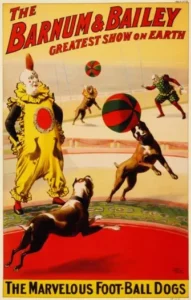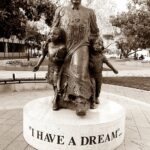Hope or Humbuggery
Luke 23:33 – 43

‘Blessed be the Lord God of Israel,
for he has looked favorably on his people and redeemed them.
He has raised up a mighty saviour for us
in the house of his servant David,
as he spoke through the mouth of his holy prophets from of old,
that we would be saved from our enemies and from the hand of all who hate us.
Thus he has shown the mercy promised to our ancestors,
and has remembered his holy covenant,
the oath that he swore to our ancestor Abraham,
to grant us that we, being rescued from the hands of our enemies,
might serve him without fear, in holiness and righteousness
before him all our days.
And you, child, will be called the prophet of the Most High;
for you will go before the Lord to prepare his ways,
to give knowledge of salvation to his people
by the forgiveness of their sins.
By the tender mercy of our God,
the dawn from on high will break upon us,
to give light to those who sit in darkness and in the shadow of death,
to guide our feet into the way of peace.’
There’s a difference between hope and humbuggery. Authentic hope gives people powerful motivations to live. Humbuggery is deceptive and false promises designed to make the humbug more powerful and richer. We are not particularly good at telling the difference between hope and humbuggery. I am not kidding here. Jesus warns us that there will be humbugs in our midst. Earlier in Matthew 24 – “Beware that no one leads you astray. For many will come in my name, saying, ‘I am the Messiah!’ and they will lead many astray.”
Perhaps the greatest humbug in American history was P. T. Barnum. “There’s a sucker born every minute.” P. T. Barnum gets credit for this idea. Do the math. That’s 525,600 suckers per year. In 10 years, 5,256,000 suckers. In 50 years, 262,800,000. The population of the USA is around 320,000,000. That’s a lot of suckers.
Texas A & M rhetoric professor, Jennifer Mercieca recounts one of Barnum’s most outrageous humbugs. In 1835, Phineas Taylor Barnum was down on his luck and anxious to find an “amusement” that would attract paying customers. One lucky day a stranger came into the shop where Barnum worked and told him that he possessed half-ownership of a “curiosity”: a woman named Joice Heth who, the stranger claimed, was the 161-year-old slave who raised George Washington.
Barnum examined Heth and the stranger’s “proofs” about her age and provenance and, convinced of her seeming veracity, bought Heth from the stranger. Barnum wasted no time advertising his new attraction.
Barnum’s advertising strategy depended hyperbole and humbug. People flocked to see the 161-year-old woman. Then someone claimed that Heth was a humbug, a hoax. This person said Heth was a automaton made up of whalebone, India-rubber, and springs like a giant puppet. Here voice was that of a ventriloquist
The accusations made all the newspapers, but didn’t hurt Barnum’s show; it made it bigger. Barnum would recall that “hundreds who had not visited Joice Heth were now anxious to see the curious automaton; while many who had seen her were equally desirous of a second look, in order to determine whether or not they had been deceived.”
Joice Heth died in early 1836, ending Barnum’s show but not the nation’s curiosity over Heth. Barnum took advantage of that interest, arranging another Heth show: 1,500 audience members paid 50 cents each—double what audiences had paid to see her alive—to watch as Dr. David L. Rogers conducted an autopsy on her body. According to the February 25, 1836 edition of The New York Sun, Dr. Rogers concluded that Heth’s “wonderful old age was a wonderful humbug.” While she was, in fact, a real person, she was nearer to 80 than to 160 years old.
But, Barnum had the last word. He planted a story with The Sun’s competitor, The New York Herald on February 27, 1836, which claimed that the Heth humbug story was itself humbug. In fact, reported The Herald on “good authority,” Heth was “not dead” at all, but alive and well in Connecticut.
To be clear: 1) the story about Joice Heth was a humbug, she was neither 161 years old nor the former slave of the Washington family; 2) the story about Heth actually being an automaton was a humbug; and 3) the story refuting Heth’s autopsy results was yet another humbug. Barnum’s story of Joice Heth was at least three layers of humbug deep. Americans have never lost our fascination with humbuggery and hyperbole.
P. T. Barnum is our patron saint. We are immersed in layers and layers of humbuggery – politically, religiously, culturally. He humbugs, like termites, are coming out of the woodwork. From the Creation Museum to Christian nationalists, from the conspiracy theorists to the insurrectionists, from the political scams and lies to the political divisions, from the attacks on science and history, it’s a parade of humbuggery.
I want to give you hope, not humbuggery. The authentic hope is in Jesus. Paul says in Romans 5, in a text Protestants used to build our faith, “Therefore, since we are justified by faith, we have peace with God through our Lord Jesus Christ, through whom we have obtained access to this grace in which we stand; and we boast in our hope of sharing the glory of God. And not only that, but we also boast in our sufferings, knowing that suffering produces endurance, and endurance produces character, and character produces hope, and hope does not disappoint us, because God’s love has been poured into our hearts through the Holy Spirit that has been given to us.” Hope never disappoints us.
Our lectionary reading in Luke looks on the baby Jesus and sees the new world. This is hope, all the hope in the world.
Jesus brings his kingdom to earth and implants us in this not-yet-but-will-be experience. He tells us to live backward from the vision to the present. Our job is to pull God’s new kingdom into the old world. We bring God’s time into ordinary time. Down in Louisiana, we have crawfish. Do you know that the crawfish navigates on the bottom of the bayou backward? The crawfish always travels in reverse. A three-gear transmission of reverse. God is calling us to be his “crawfish,” living backwards so that God’s future becomes our present. God doesn’t intend to wait until heaven to pass out all the gifts. God dispenses the gifts now through his church. Paul says that when Jesus came he brought gifts and gave them to his people. Heaven came to earth. And we keep discovering new gifts, because the gifts of the Holy Spirit are not carved in stone. They are not just the list found in the Bible because, guess what, music is not listed as one of the Holy Spirit gifts in the Bible? Well, can you say Bach, Beethoven, Mozart? Liszt? No wonder Paul left the gift of women in ministry out of his letters? He just didn’t get it yet. Music and women in ministry – gifts of the Holy Spirit.
The ancient philosophers taught their students to hold in their minds “a vision of the future they wanted to attain, a vision of ultimate happiness, completeness, the sort of person you’d want to become; and then they encouraged you to learn and practice the qualities of character you would need to be working on in the present to shape yourself into that sort of a person.” (N. T. Wright).
This makes sense when you think of how Jesus lived and how Jesus approached life. He turned everything upside down: wisdom, power, class, status. He lived backward. In other words, he lived as if God’s future was God’s present. Don’t wait for heaven. Live now as we will live then. It’s not the beginning or the end that should consume us, it is the here and now.
I invite you to be part of this faithful pilgrimage. No one will be judged or left behind or condemned. Here comes everyone! Together we will learn how to see the life that Jesus intends for us, and then we will live it together. After all, it is a beautiful thing when brothers and sisters live together in unity.
John F. Kennedy, in his inaugural address, sounded a call for unity that sounds almost incredulous today. And so, my fellow Americans: ask not what your country can do for you–ask what you can do for your country. My fellow citizens of the world: ask not what America will do for you, but what together we can do for the freedom of man.
Hope or Humbug? We need to choose whether we are to be formed by the hope of Jesus or the humbug of our culture.











